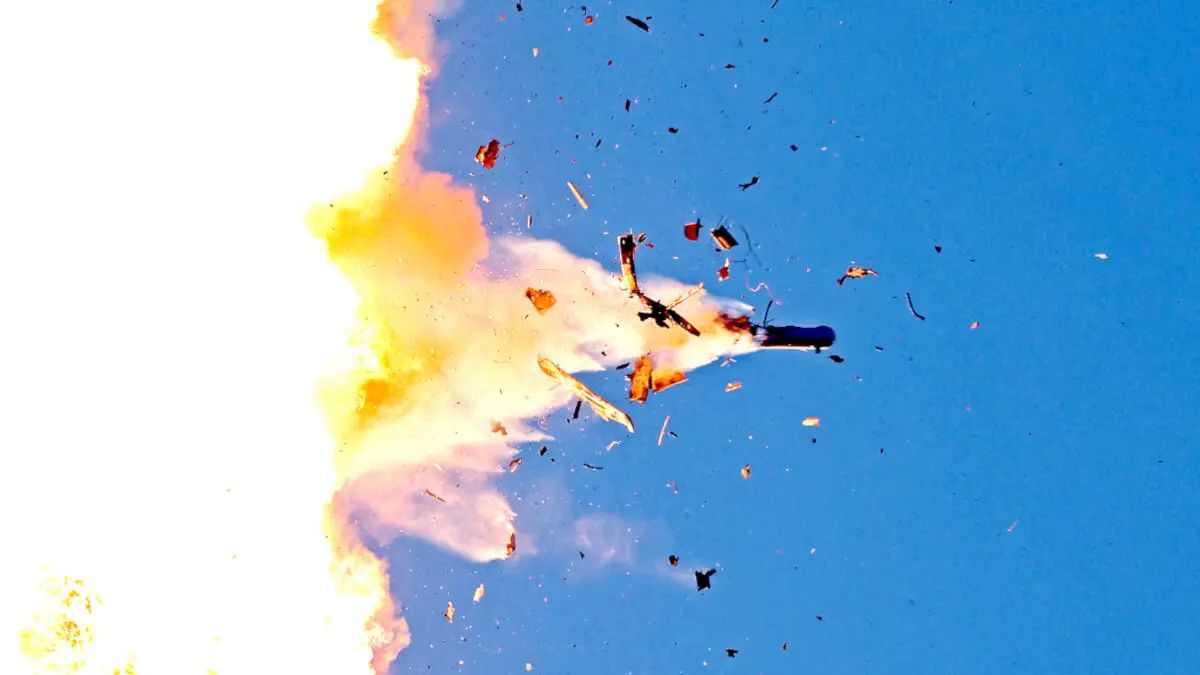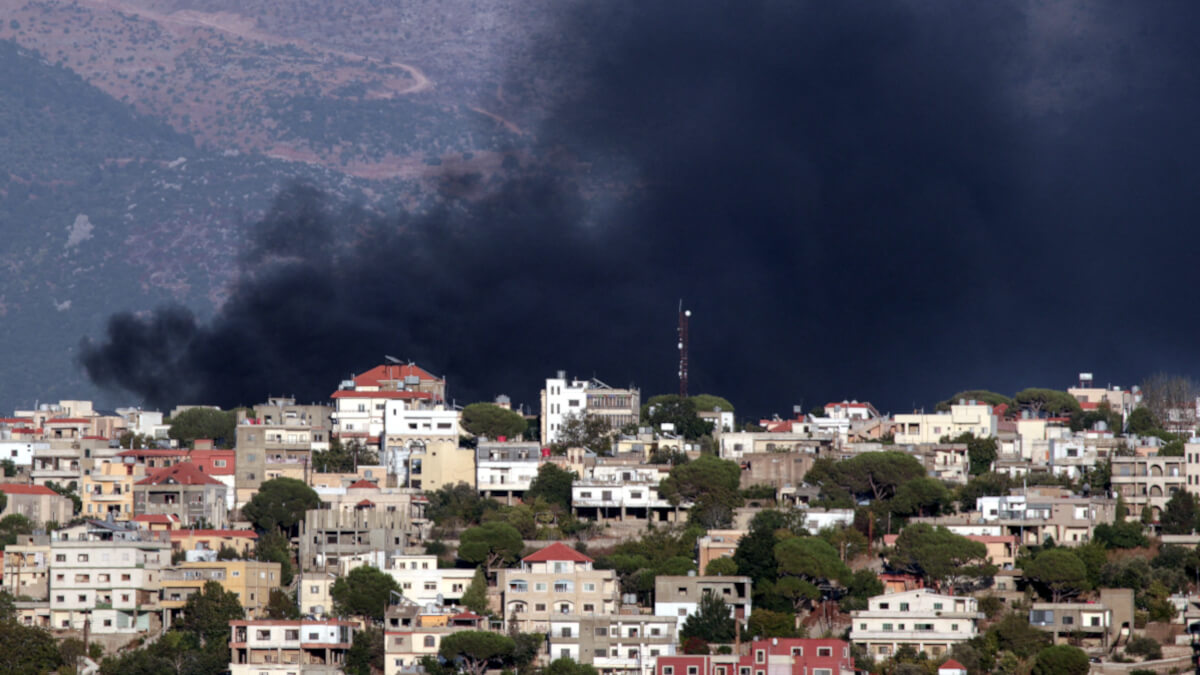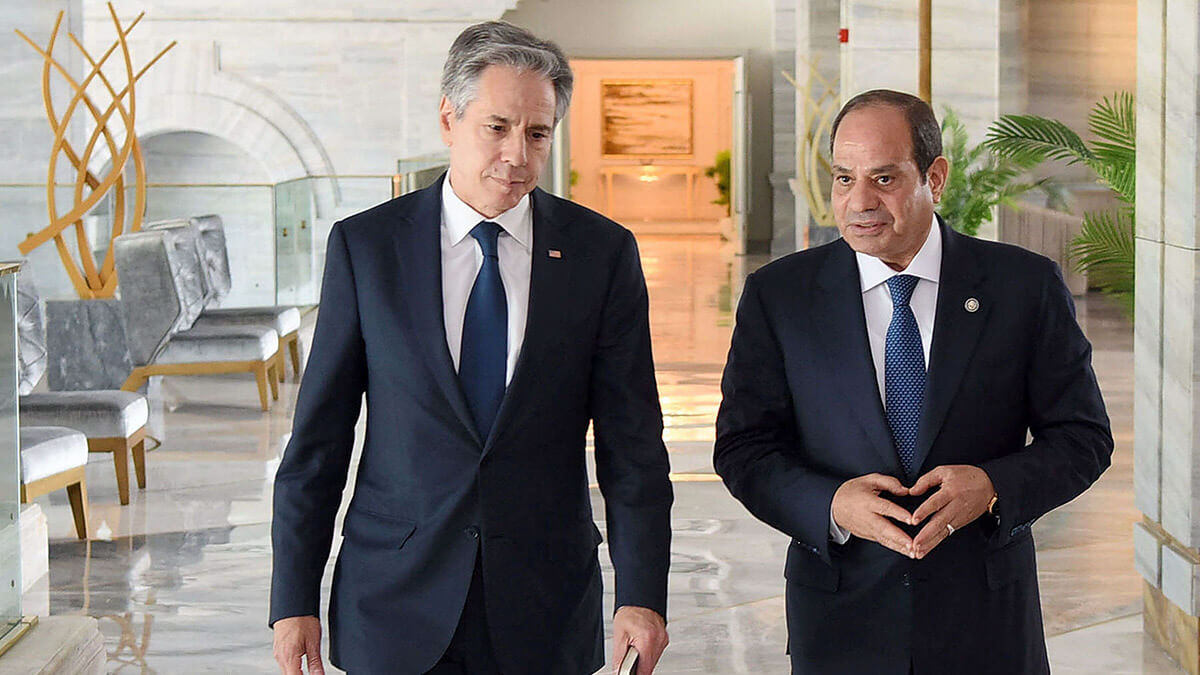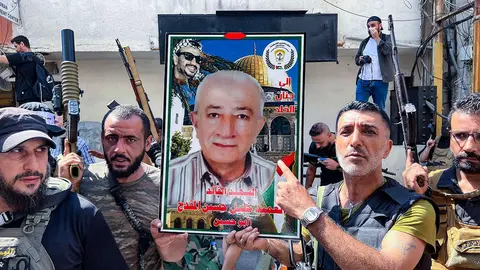Israel responds with air strikes in Lebanon as Middle East tensions rise

Israel carried out fresh strikes after the armed group Hezbollah fired hundreds of rockets and drones in revenge against one of its top commanders. Hezbollah said it attacked 11 Israeli military bases on Sunday, firing more than 320 rockets and launching drones in northern Israel in the ‘first phase’ in response to the death of Fouad Shukur. Israel carried out air strikes in Lebanon after assessing that Hezbollah was preparing to launch missiles and rockets at Israel.
Israeli military spokesman General Daniel Hagari said 100 fighter jets struck more than 40 Hezbollah rocket launching sites and destroyed thousands of barrel rocket launchers intended for immediate firing into Israel.
An Israeli drone crashed into a car in the southern Lebanese town of Shyam on Sunday morning, killing one man and injuring at least four others in separate strikes, a medical source told The Guardian. Israeli Defence Minister Yov Galant declared a 48-hour state of emergency across the country, giving the Israeli army the authority to impose restrictions on the movement of civilians. Israel's security cabinet meets at 7:00 a.m. local time.

Israeli Prime Minister Benjamin Netanyahu said Israel would take all necessary measures to defend itself and would harm ‘anyone who harms Israel’. Foreign Minister Israel Katz said Israel would respond to developments on the ground, but would not seek all-out war.
Gallant spoke to US Defence Secretary Lloyd Austin about the air strikes in Lebanon and assured them they were defensive in nature. ‘President Biden is closely following developments in Israel and Lebanon,’ said National Security Council spokesman Sean Savitt. ‘We will continue to support Israel's right to defend itself and we will continue to support regional stability.’
According to Reuters, Hezbollah said it had struck an identified military target, as well as platforms in Israel's Iron Dome and elsewhere, but that a full response would take ‘some time’. Hezbollah said the attack involved more than 320 Katyusha rockets and a ‘large number’ of drones targeting various locations in Israel.

It later announced that the day's military operations had ended. The Lebanese group denies that Israel's pre-emptive strikes prior to the attack affected its operations. ‘The enemy's claims about the pre-emptive actions it has taken, the targets it has hit and the damage it has caused to the resistance group's (Hezbollah) attacks are empty,’ it said in a statement. It added that all drones ‘flew to their intended targets’ as planned.
Flights to and from Tel Aviv's Ben Gurion airport have been suspended and a meeting of the Israeli Cabinet of Ministers is scheduled for 7:00 (4:00 GMT), according to Israeli media. Anti-aircraft sirens could be heard over northern Israel.
Jordan's Royal Jordanian Airlines suspended flights to Beirut on Sunday ‘due to the current situation’, the state news agency said, without specifying the length of the suspension. The attack comes as Egypt holds a new round of talks aimed at ending the 11-month war between Israel and Hamas.
The heated exchange comes amid growing concerns that the United States, Iran and their belligerent allies in the region could become embroiled in all-out war.
Israel's military said the attack was provoked by Hezbollah's plans to launch a brutal rocket attack on Israel. Shortly afterwards, Hezbollah announced an attack on Israeli military positions, the first response to the death of one of the group's founders, Fouad Shukur, in an Israeli air strike in Beirut a month earlier.
By midday it was clear that the exchange of views was over: both sides announced that they would only attack military targets. At least three people were killed in the attacks in Lebanon; no casualties have been reported in Israel. The situation remains tense.

The attack comes after a new round of talks in Egypt as Arab and US mediators try to broker a ceasefire in the 10-month war between Israel and Hamas in the Gaza Strip, hoping to avert a wider conflict.
Hezbollah says it will stop fighting if a ceasefire is reached in Gaza. Iran supports both groups, as well as fighters in Syria, Iraq and Yemen who could become involved in the wider conflict.









